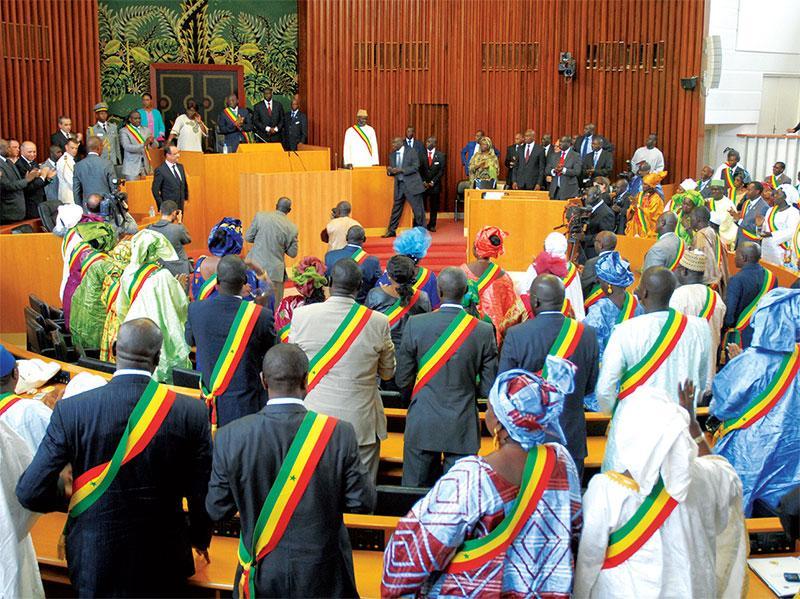Gambiaj.com – (DAKAR, Senegal) – Senegal’s National Assembly is set for a contentious debate as the Pastef-led parliamentary majority moves to introduce a bill interpreting the amnesty law enacted under former President Macky Sall. The law, which granted amnesty for offenses committed between 2021 and 2024, was introduced following violent protests ahead of President Bassirou Diomaye Faye’s election. However, the move has ignited widespread controversy, with about 20 civil society organizations urging lawmakers to halt the vote and engage in broader dialogue on the matter.
The amnesty law has been at the center of political and legal discourse, with critics arguing that it obstructs justice for victims of past unrest. While Pastef has refrained from seeking a complete repeal of the law, its proposed bill aims to clarify provisions in a law that facilitated the release of figures such as Ousmane Sonko and Bassirou Diomaye Faye from prison, enabling the latter to contest the presidential election.
Detractors, including opposition leaders and civil society groups, claim that the reinterpretation selectively shields Pastef militants from accountability while leaving others exposed to prosecution.
One of the strongest critics of the bill, Member of Parliament Thierno Alassane Sall, denounced it as an attempt to institutionalize impunity.
Civil society organizations have echoed similar concerns, calling on lawmakers to uphold justice and transparency in addressing past political violence.
Meeting in Dakar, the coalition of 20 civil society organizations renewed their call for inclusive consultations before any legislative decision is made. They stressed the importance of principles such as truth-seeking, the fight against impunity, compensation for victims, legal reforms to prevent future conflicts, and ensuring an inclusive process that allows victims and civil society groups to express their views.
The organizations also demanded a suspension of the vote on the interpretative bill to ensure that justice remains impartial and independent.
Among the groups leading the charge are Y’EN A MARRE, AFRIKAJOM CENTER, and the LIGUE SÉNÉGALAISE DES DROITS HUMAINS. They have urged both the government and parliament to prioritize meaningful dialogue, emphasizing that any decision regarding the amnesty law should be made through a transparent and consultative process.
The battle over the law’s interpretation underscores broader concerns about political accountability and the rule of law in Senegal’s evolving political landscape.










